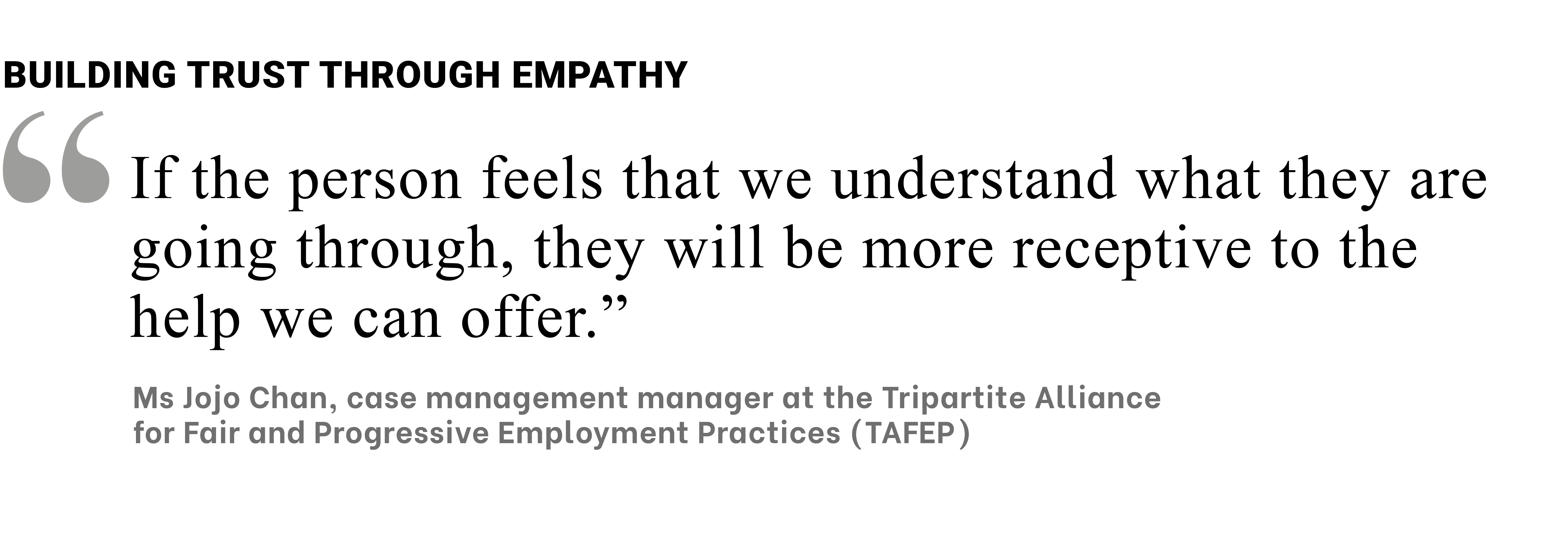For employees grappling with workplace grievances, having a safe space to speak openly is the first step towards getting help.
This is exactly what Ms Jojo Chan provides as a case management manager at the
Tripartite Alliance for Fair and Progressive Employment Practices
(TAFEP).
In her role, the 37-year-old often takes calls from individuals who are unsure or hesitant to talk about their situation. Emma (not her real name) was one of them.
Emma had stayed silent for months, until a conversation with Ms Chan gave her the confidence to open up about a colleague’s unwanted advances. From inappropriate remarks to physical contact, Emma recounted details she had not even told her closest friends or family.
“I made sure that she could take her time to speak, and that she felt comfortable enough to describe the incidents that had happened to her,” Ms Chan says.
Sometimes, callers break down in tears or express suicidal thoughts, she adds. Moments like these call for empathy, patience and sincerity – qualities Ms Chan developed over 13 years in her previous jobs in hospitality and human resources (HR).
“If the person feels that we understand what they are going through, they will be more receptive to the help we can offer,” she says.
She chooses her words with care. For instance, to avoid sounding prescriptive, she uses phrases like “maybe you can consider” instead of “you should”.
With this support, people like Emma find the courage to take the next step. Ms Chan encouraged her to report the issue to HR and seek assistance through its
grievance handling channel
.
The company initiated an internal investigation, and the co-worker who had harassed her was eventually asked to leave.
“Her company concluded that his actions warranted disciplinary action, and she said she was very grateful for our advice throughout this process,” Ms Chan says.
TAFEP was set up in 2006 by Singapore’s tripartite partners to promote fair and progressive employment practices.
It gives employees an avenue to turn to when faced with unfair treatment at the workplace, guides employers in building inclusive, merit-based workplaces, and recognises progressive employers through the Tripartite Alliance Award.

In 2024, TAFEP received over 9,000 calls, emails and web enquiries, mostly from people seeking advice or sharing feedback.
Most of the complaints it received related to discrimination based on language, nationality and age.
Ms Chan helps employees better understand their rights and explore their options, while assuring them that they remain in control of the next step. After hearing their options, the employees are in a better position to make a well-informed decision.
The first step, she says, is often encouraging them to report the issue to their HR department.








